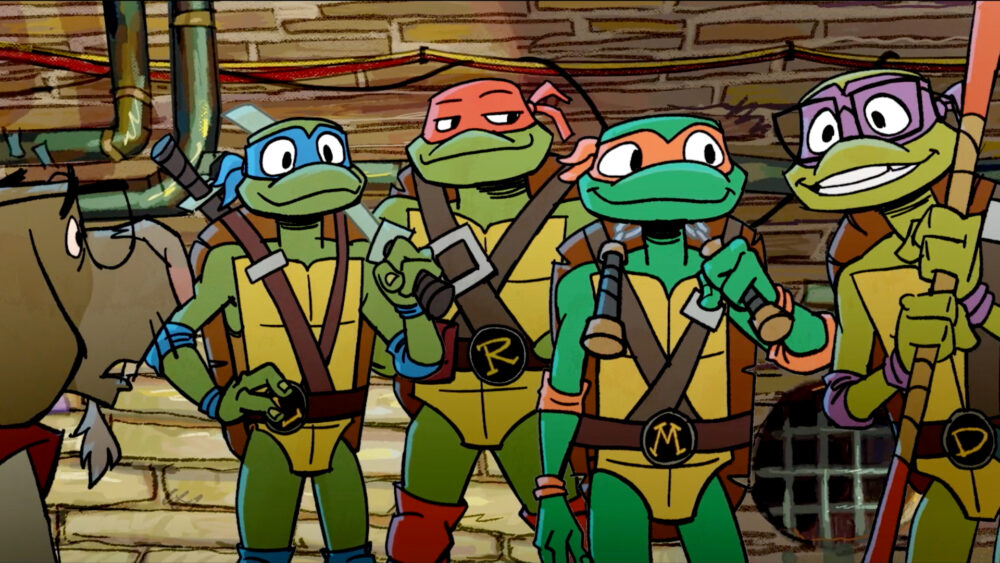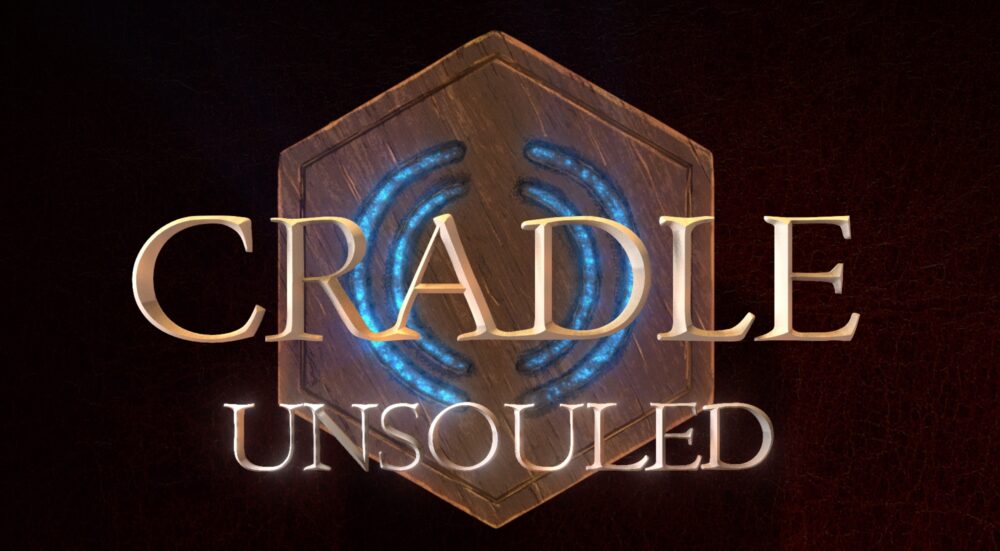Reviewed by Alicia Glass
It’s generally an accepted fact that high school, no matter what age you happen to hail from, is a kind of Hell. The disaffected movie from the 80’s, starring a young Winona Ryder and Christian Slater as a pair of high school kids who end up plotting to literally end the revolution of popular ‘Heathers’ girls at their school, is a black comedy usually found relatable to a lot of people. Take a selfie and dive into the revamped miniseries ‘Heathers’ from the Paramount Network!
So like any typical high school show, Westerburg High is ruled by the popular kids, in this case the three Heathers: Duke, the screamingly flamboyant male gay Heath-er; McNamara, the black self-proclaimed lesbian who has affairs with her teachers; and Chandler, the plus-size gangsta shark leader of the bunch. Veronica Sawyer, while not being named Heather, has been a friend of theirs for a long time, and dutifully follows the Heathers’ insistent instructions on how to remain rulers of the school. And then there’s JD, not part of any clique or club, and yet Veronica coins a morbid fascination for him.
The Heathers personify the absolute worst of today’s PC culture cliques one can think of, especially after Chandler’s miraculous death and resurrection and her determination to become the ‘face of suicide’. Really, girl? Heather Chandler (Melanie Field) stalks the school like Missy Elliot on bad rainbow acid, giving benevolent and saint-like touches with one hand and pointing the demanding accusatory do-it-NOW-or-I’ll GUT-you finger with the other. While it may be true Chandler’s home-life is far from exemplary and she is surrounded by enablers at school, her messianic complex has a tendency to get on my last nerve. And that is likely precisely the point.
Heather McNamara (Jasmine Mathews) is barely in the show, as she decides to be the ultimate trendy and be the first major girl to take her own life, at the end of the very first episode. The pretty little black self-proclaimed lesbian who happens to be having affairs with her considerably older, white male teachers is an interesting twist on a standard trope, but even that can’t infuse this Heather with a ton of personality. Heather Duke (Brendan Scannell) on the other hand, screams personality and demands to be seen and noticed with his utterly fabulous ways, darling, and yet his little drag-apalooza is often over-shadowed by the shallowness of his heart. Because your sexual orientation doesn’t matter when you’re truly an asshole, capable of anything and everything to get what you think you want. It doesn’t help that Heather Duke’s stepmother (Selma Blair) is the worst kind of trailer park noveau riche trash one can think of, too.
JD (James Scully) is of course the disaffected standoffish bastard like many of us, hating the rat race that is his high school experience, annoyed at his rich never-there father and his eternal parade of ever-younger girlfriends, the poor little rich rebel without a cause or a clue. The oppressed violence that seems to lurk in many teenagers these days is given license in JD, especially once he discovers Veronica not only shares his tastes, but can do him one better, too. It sure doesn’t help that JD’s missing mother, played in flashbacks by the redoubtable Shannon Doherty, encourages him to live freely in his dark impulses, like she did.
Annnnd, then there’s Veronica (Grace Victoria Cox) herself. She keeps the same strange affectations the original Veronica did – the monocle for writing in her ever-present diary, the bloodlust and bloodshed, the hormonal madness given whirling dervish form. She obsesses over the Heathers and her part in them, she righteously turns the tables on JD as far as crazy goes, and she all but gleefully goes tripping about committing murder. But in all honesty, the angst that the original Veronica suffered, even while she was happily joining JD in murder, was more realistic and enjoyable.
It’s a very brave move for the Paramount Network to not only remake the ‘Heathers’ movie into a TV series, given all the very real high school violence and suicide that happens these days. The show was originally scheduled to have a certain number of episodes, and an entire episode was scrapped from showing on TV due to the Sante Fe and Parkland school shootings. The show’s premiere was actually pushed back a few times due to school shootings, but eventually went ahead with it, to generally positive reviews. And there are still talks of a second season, which yeah, I would watch.
Check your privilege with the new ‘Heathers’, on the Paramount Network now!

Events
Paramount+ Reveals Official Main Title Sequence for the Upcoming Series TALES OF THE TEENAGE MUTANT NINJA TURTLES

During the TALES OF THE TEENAGE MUTANT NINJA TURTLES panel earlier today at San Diego Comic Con, Paramount+ revealed the official main title sequence for the series. The sequence is composed by EMMY® nominee, Matt Mahaffey, known for his work on Sanjay and Craig, Rise of the Teenage Mutant Ninja Turtles, and Rise of the Teenage Mutant Ninja Turtles: The Movie and much more.
From the studios of the Mutant Mayhem film, the all-new Paramount+ original series TALES OF THE TEENAGE MUTANT NINJA TURTLES explores the adventures of everyone’s favorite pizza-loving heroes as they emerge from the sewers onto the streets of NYC. Leo, Raph, Donnie and Mikey are faced with new threats and team up with old allies to survive both teenage life and villains lurking in the shadows of the Big Apple. The series is produced by Nickelodeon Animation and Point Grey Pictures.
TALES OF THE TEENAGE MUTANT NINJA TURTLES is executive produced by Chris Yost (The Mandalorian, Thor: Ragnarok) and Alan Wan (Blue Eye Samurai, Rise of the Teenage Mutant Ninja Turtles, Teenage Mutant Ninja Turtles [2012 Series]). Production is overseen for Nickelodeon by Claudia Spinelli, Senior Vice President, TV Series Animation, Nickelodeon, and Nikki Price, Director of Development and Executive in Charge of Production.
In addition to the upcoming new series, stream all things Turtles on Paramount+.
Events
Comic-Con 2024: Those About to Die Activation
Events
DISNEY+ CASTS DANIEL DIEMER AS FAN-FAVORITE ‘TYSON’IN SEASON TWO OF “PERCY JACKSON AND THE OLYMPIANS”

in Hall H at San Diego Comic-Con, Rick Riordan and Disney+ revealed that Daniel Diemer (“Under the Bridge”) will star as fan-favorite cyclops “Tyson” in the epic adventure series “Percy Jackson and the Olympians.” Diemer joins Walker Scobell (Percy Jackson), Leah Sava Jeffries (Annabeth Chase) and Aryan Simhadri (Grover Underwood) as a series regular. The Disney+ Original series from Disney Branded Television and 20th Television will start filming its second season next week in Vancouver.
Season two of “Percy Jackson and the Olympians” is based on the second installment of Disney Hyperion’s best-selling book series titled “The Sea of Monsters” by award-winning author Rick Riordan. In the new season, Percy Jackson returns to Camp Half-Blood one year later to find his world turned upside down. His friendship with Annabeth is changing, he learns he has a cyclops for a brother, Grover has gone missing, and camp is under siege from the forces of Kronos. Percy’s journey to set things right will take him off the map and into the deadly Sea of Monsters, where a secret fate awaits the son of Poseidon.
Diemer stars as Tyson – a young Cyclops who grew up all alone on the streets, and finds it difficult to survive in the human world. Shy and awkward, with a heart almost as big as he is, Tyson soon discovers that Poseidon is his father, which means Percy Jackson is his half-brother… and that Tyson may have finally found a home.
Diemer recently starred in the Hulu limited series “Under the Bridge” based off the critically acclaimed book of the same name and a tragic true story of a missing teen girl in Vancouver in 1997. He will next star in the indie “Thug” opposite Liam Neeson and Ron Perlman for director Hans Petter Moland. Daniel was recently seen as the lead in the indie “Supercell” opposite Alec Baldwin and Skeet Ulrich and the lead in the film “Little Brother” opposite Phil Ettinger and JK Simmons. Daniel can also be seen in the Netflix series “The Midnight Club” and recently starred as the male lead in the breakout hit Netflix feature “The Half Of It” from producer Anthony Bregman and director Alice Wu. He is a graduate of Victoria Academy of Dramatic Arts in Vancouver.
Created by Rick Riordan and Jonathan E. Steinberg, season two of “Percy Jackson and the Olympians” is executive produced by Steinberg and Dan Shotz alongside Rick Riordan, Rebecca Riordan, Craig Silverstein, The Gotham Group’s Ellen Goldsmith-Vein, Bert Salke, The Gotham Group’s Jeremy Bell and D.J. Goldberg, James Bobin, Jim Rowe, Albert Kim, Jason Ensler and Sarah Watson.
The first season of “Percy Jackson and the Olympians” is available on Disney+
-

 Interviews1 day ago
Interviews1 day agoInterview With Heroes & Villains Creative Director Doug Johnson
-

 Streaming1 day ago
Streaming1 day agoApple TV+ announces season two for delightful kids and family series “Camp Snoopy
-

 Events1 day ago
Events1 day agoThat’s My E Coverage Of The Adult Swim’s Pirate Parrrty
-

 Events13 hours ago
Events13 hours agoParamount+ Reveals Official Main Title Sequence for the Upcoming Series TALES OF THE TEENAGE MUTANT NINJA TURTLES
-

 Events16 hours ago
Events16 hours agoDISNEY+ CASTS DANIEL DIEMER AS FAN-FAVORITE ‘TYSON’IN SEASON TWO OF “PERCY JACKSON AND THE OLYMPIANS”
-

 Interviews17 hours ago
Interviews17 hours agoComic-Con 2024: Will Wight’s Cradle
-

 Events16 hours ago
Events16 hours agoComic-Con 2024: Those About to Die Activation


